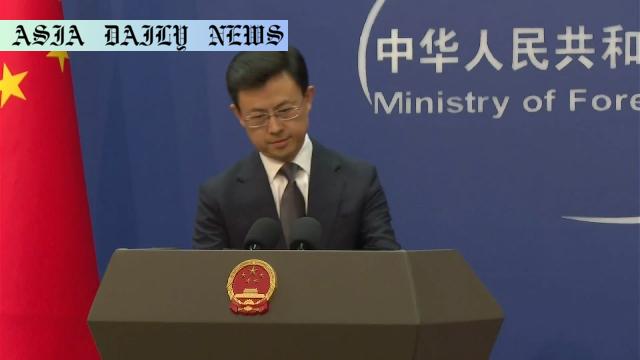China calls for stable economic relations and climate action amidst Trump’s new policies.
China calls for stable bilateral economic relations with the US.
Beijing expresses concern over President Trump’s policies, including climate action withdrawal.
Dialogue and fair business practices emphasized as key to US-China relations.

China Advocates for Cooperative Economic and Trade Relations
Following the inauguration of U.S. President Donald Trump, China’s Foreign Ministry has emphasized the importance of stable dialogue to address differences and foster bilateral relations. Guo Jiakun, spokesperson for the Foreign Ministry, highlighted how a mutual understanding is necessary for stable, healthy, and sustainable trade relations. Recognizing the absence of additional tariffs on China during Trump’s first day in office, Guo expressed hope for a balanced and cooperative approach moving forward.
Concerns over TikTok and Trade Policies
The ongoing issue surrounding TikTok, a video-sharing platform owned by a Chinese firm, has also drawn attention. President Trump has proposed forming a joint venture where a U.S. company would hold a 50% stake. Additionally, he hinted at the possibility of increased tariffs if the deal does not materialize. In response, China calls for an open and transparent business environment guided by market principles, urging decisions to be made based on fairness rather than political motives.
Climate Change – A Point of Divergence
A major point of contention arose with President Trump’s signing of an executive order to remove the United States from the Paris Climate Agreement. Guo underscored the shared global responsibility in addressing climate change, emphasizing that no nation is immune from its effects. China reiterated its commitment to collaborate with other countries on this pressing issue and urged the U.S. to take a rational approach to protect future generations.
China’s Stance on Political Sanctions
When questioned about the sanctions barring U.S. Secretary of State Marco Rubio from entering China, the Foreign Ministry spokesman avoided a direct response but highlighted that China prioritizes safeguarding its national interests. The emphasis was placed on maintaining open communication channels between high-ranking officials from both nations in an appropriate manner to avoid diplomatic strain.
Shaping the Future of US-China Relations
China’s measured response to the inauguration of President Trump reflects an emphasis on pragmatism and dialogue. The country’s call for fair and just interactions on economic and geopolitical issues underscores its hope to establish a collaborative framework, despite divisive policies and differing approaches on key issues like trade, business acquisitions, and climate action.



Commentary
The Importance of Dialogue in US-China Relations
The inauguration of President Trump has ushered in a new chapter for international relations, not least between the United States and China. As two economic powerhouses with deeply intertwined interests, their ability—or inability—to collaborate effectively will have far-reaching consequences for global stability. A mutual commitment to dialogue, as emphasized by China’s Foreign Ministry, could be a crucial factor in navigating the turbulent waters of international diplomacy.
Economic Tensions with a Global Ripple Effect
The proposal to restructure TikTok’s ownership and the potential threat of tariffs highlight the fragility and complexity of US-China economic relations. While protecting domestic industries is an understandable goal for any administration, adopting policies perceived as unfair or discriminatory could harm both nations and destabilize the global economy. Open and fair practices should be prioritized to avoid setting dangerous precedents.
Climate Change: A Missed Opportunity for Unity
One of the most concerning moves by the Trump administration is the withdrawal from the Paris Climate Agreement. Climate change poses an existential threat that transcends borders and ideologies. By stepping away from this global pledge, the US risks isolating itself and undermining collective efforts to address a shared challenge.
Seeking Balance and Reciprocity
The path forward will require a delicate balance. Both nations must resist resorting to purely protectionist or unilateral actions. Instead, they should seek a reciprocal relationship that values mutual benefits over short-term gains. China’s call for rationality and fairness could serve as a foundation for building a more predictable and cooperative future.